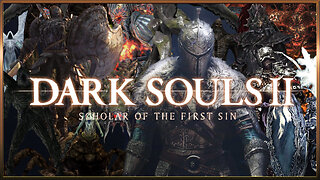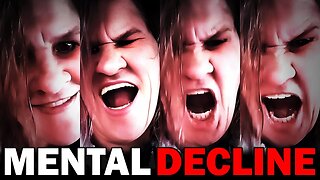Premium Only Content

The Secret of "Self"
Excerpt from Man & His Symbols (Audiobook) by Carl G. Jung on the concept of the Self.
The Self in Jungian psychology is one of the Jungian archetypes, signifying the unification of consciousness and unconsciousness in a person, and representing the psyche as a whole. The Self, according to Jung, is realised as the product of individuation, which in his view is the process of integrating one's personality.
For Jung, the Self is symbolised by the circle (especially when divided in four quadrants), the square, or the mandala.
What distinguishes Jungian psychology is the idea that there are two centers of the personality. The ego is the center of consciousness, whereas the Self is the center of the total personality, which includes consciousness, the unconscious, and the ego. The Self is both the whole and the center. While the ego is a self-contained little circle off the center contained within the whole, the Self can be understood as the greater circle.
Jung considered that from birth every individual has an original sense of wholeness - of the Self - but that with development a separate ego-consciousness crystallizes out of the original feeling of unity. This process of ego-differentiation provides the task of the first half of one's life-course, though Jungians also saw psychic health as depending on a periodic return to the sense of Self, something facilitated by the use of myths, initiation ceremonies, and rites of passage.
Once ego-differentiation had been successfully achieved, and the individual securely anchored in the external world, Jung considered that a new task then arose for the second half of life - a return to, and conscious rediscovery of, the Self: individuation.
-
 0:04
0:04
JacobPayne
3 years ago $0.01 earnedSecret Waterfall
306 -
 0:09
0:09
Xlait77
3 years ago $0.01 earnedThe secret waterfall
117 -
 12:38
12:38
Mark Levin Show
3 years agoSupreme Secret
14.3K71 -
 5:04
5:04
Film Threat
1 day agoA WORKING MAN | Film Threat Reviews
10.6K3 -
 22:08
22:08
Misha Petrov
22 hours agoMain Character Syndrome Is Spreading
6.83K27 -
 LIVE
LIVE
DarknessGames
13 hours agoIT'S BACK! - Dark Souls II (Part 7)
95 watching -
 28:30
28:30
CatfishedOnline
23 hours agoWoman Wants to Leave BF for Lover or Romance Scam?
8.24K6 -
 LIVE
LIVE
DookiePox
3 hours agoGood Morning. Sunday Morning.
15 watching -
 LIVE
LIVE
johnnymassacre
10 hours agoLet's Play Space Marine 2 | ANGEL OF DEATH MODE | Pt 3
156 watching -
 18:07
18:07
Bearing
2 hours agoThe INSANE MENTAL DECLINE of the Democrats 💥 Lefties are NOT Ok
6.28K24